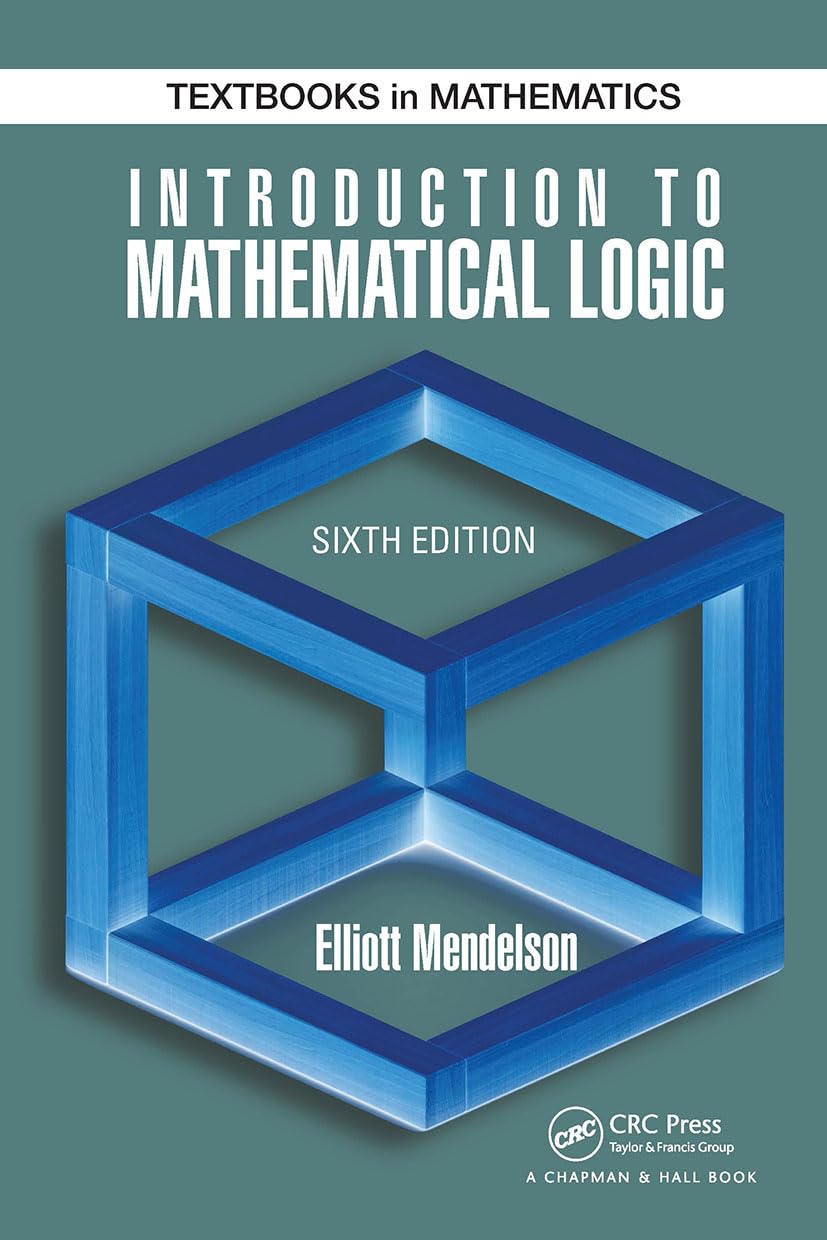

Introduction to Mathematical Logic (Discrete Mathematics and Its Applications)
J**Z
A great introductory text for self study!
Before reading this text, my background with mathematical logic is limited to an undergrad "Intro to Mathematical Proofs" course required for math majors before taking analysis, topology, and modern algebra courses. It covered the basic propositional and predicate calculus, but went no further than its immediate application to elementary mathematical proof. In this sense, I am a beginner when it comes to the formal study of Mathematical Logic, and I have had some great experiences reading this book as a self-study text.This book has been an excellent text for self study, thus far. This book contains five total chapters: the first two contain the fundamental theorems of First-Order Logic, the third covers an axiomatic number theory and Godel's incompleteness theorems, the fourth discusses axiomatic set theory, and the fifth serves as an introduction to computability theory. I planned on a detailed study of the first three chapters before moving on to a different text on Axiomatic Set Theory, and have just finished the first chapter.Despite what another reviewer has said about the text, I have found the material in this chapter to be quite accessible. The material in this chapter is self contained, in that you can begin right away with Mendelson's definitions at the beginning of each section and proceed to prove all of the presented theorems using those definitions. No prior experience with propositional logic is needed when beginning chapter 1, since it takes an axiomatic approach. Skip none of the exercises, and leave no lemma, proposition, or theorem unproven. There is valuable experience gained in completing all of these on your own. I highly recommend this text for self study.
F**N
I don't like this book
I don't like this book. Here are the reasons:1) How could the subscript font still be so unreadable - this is the 6th edition. The"i" and "j" subscripts are nearly impossible to decipher.2) The material in this book in dense and each page requires several re-reads to gain a clear understanding. This is true in most advanced Mathematics, but it seems unnecessarily complicated. A much clearer book is Hamilton's "Logic for Mathematicians".https://www.amazon.com/Logic-Mathematicians-G-Hamilton/dp/05213686503) The book has plenty of problems, and provides some complete answers in the back of the book. But, it doesn't have enough examples, which makes it difficult to decide how to even begin some problems.4) The book doesn't do a good job of introducing major sections, i.e. providing the reasons and motivation for the next section. Hamilton is much better in this regard.You're probably stuck with this book because, like me, it is required for a course. It's apparently the gold standard. Another source may or may not help. For example, there are different approaches and terminology between this book and Hamilton.
S**U
This 6th edition has some publication annoyances
This 6th edition has some publication annoyances, not the content. First, script fonts are unreadable with faint letters, and it should not be allowed in this high price book. Second, headers are written as "Introduction to Mathematical Logic" in all even pages of the book, so it's useless to catch which section I am reading. Third, the "Appendix C" uses logic symbols of the first edition, so it's inconsistent to the notations given in the main body.
G**N
An excellent book in every way
An excellent book in every way! I heartily recommend it for its clear coverage of main topics and its breadth!
R**O
Not Even Close to an Introduction
This book certainly has breadth. It's ok as a reference book, but it's very poor as an introductory text. The guy who gave it 5 stars obviously knew the material before he read it here. A far better introduction is "A Profile of Mathematical Logic" by the philosopher Howard Delong.
Trustpilot
3 weeks ago
1 week ago